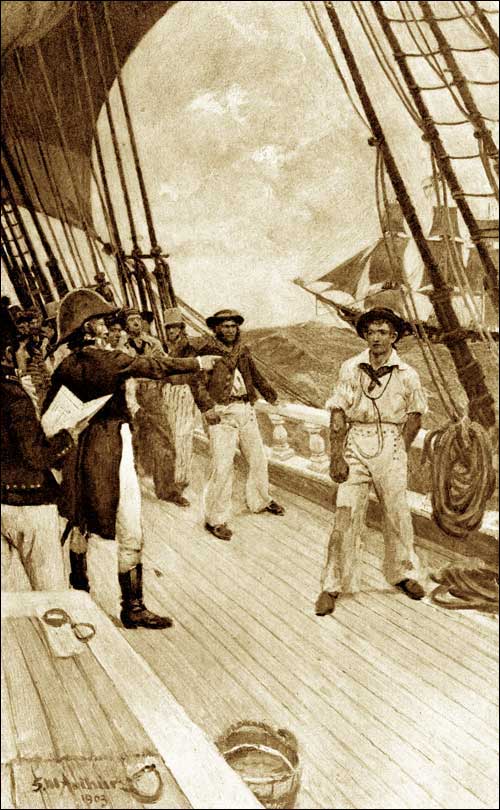Newfoundland and the French and American Wars, 1793-1815
Britain was at war with France from 1793 until 1815, with a brief period of peace in 1802-1803. This pause, the Peace of Amiens, separated the French Revolutionary Wars from the Napoleonic Wars. Tensions generated by this conflict led to the War of 1812 between Britain and the United States, and it is appropriate to discuss all three wars together.
Their long duration, the great demands they placed on Britain's military and naval establishment, and the considerable disruption that they caused to maritime trade, all combined to place great strain on Great Britain, which nevertheless emerged from the war as the foremost world power. At the same time, the wars greatly accelerated Newfoundland's own transformation "from fishery to colony." (Ryan, 1983). It is this transition which makes the era of the Napoleonic wars an important watershed in Newfoundland's history.
Fishery Expansion and Growth
During previous periods of warfare, the migratory fishery had always contracted, at least temporarily, and the resident fishery had expanded. The wars between 1793 and 1815 were different from previous wars in two important respects. First, the migratory fishery was not healthy at the outset, making it less able to withstand the impact of a period of prolonged warfare. Second, the wars had a profound impact on maritime trade.
For example, the navy's demand for men surpassed all previous levels: the pre-war naval establishment of approximately 20,000 men expanded more than seven times, the highest figure before the 20th century. The insatiable appetite for mariners, combined with the duration of the wars, made it impossible to maintain a nucleus of experienced migratory fishermen. This meant that when the wars finally ended, there was no one left to train the "green men" who were so essential to the recovery of the migratory fishery. Knowledge and skills faded over 20 years of war, making changes necessary in the organization and structure of the outfitting industry.
Yet that knowledge and those skills were not lost to the fishery itself. Many of the skilled men, both fishermen and outfitters, moved permanently to Newfoundland to avoid the upheaval caused by the war. The fishermen knew that in Newfoundland, they were exempt from impressment and protected from the risks of wartime trans-Atlantic voyages; and the merchant-outfitters knew they could apply their skills and make money in the resident fishery.

As a result, though the migratory fishery went into an irreversible decline between 1793 and 1815, the resident fishery expanded to take its place. This shift from an English-based fishery to a Newfoundland-based fishery lies at the heart of the island's transition "from fishery to colony," and is what gives the Napoleonic wars their enormous importance to the history of Newfoundland.




